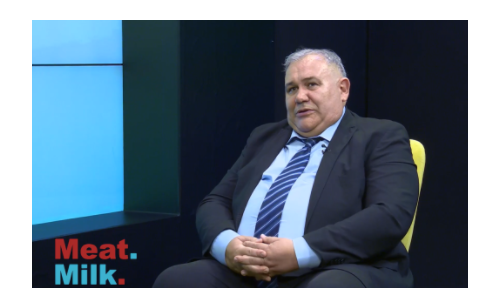1133

The latest edition of the Meat.Milk. program, broadcast on AGRO TV, featured George Bădescu, Executive Director of the Romanian Association of Large Retail Networks (AMRCR).
The discussion focused on the profound transformations in modern retail, its role in the agri-food economy, and the complex relationship between producers, consumers, and major retail chains.
George Bădescu began his career in television, at TVR, and later attended the College of Europe in Bruges, where he studied European Union law. Subsequently, he worked for nearly a decade within the U.S. Department of Justice, at the U.S. Embassy in Bucharest — a period during which Romania was consolidating its path toward NATO accession. This experience, he says, gave him a pragmatic understanding of institutions and of how partnerships are built.
After his diplomatic period, Bădescu worked in public affairs and corporate consultancy, coordinating projects for major international companies. Since 2010, he has become involved in the retail sector, and since 2016 he has been leading AMRCR — an organization that brings together the main retail chains in Romania.
In conversation with Mihnea Vasiliu, Editorial Director of the InfoGroup media group, George Bădescu emphasized that major retail networks are not merely economic actors, but also elements of social and logistical infrastructure. Retail has contributed to reducing regional disparities, creating stable jobs, and modernizing supply chains, including for local producers.
“Modern commerce has been one of the engines through which Romania managed to narrow its economic gap with the West,” he pointed out.
Regarding the relationship with Romanian producers, Bădescu explained that it is one of continuous adaptation. Small producers still face challenges related to volume, standards, and certification, while large processors and farmers manage to integrate more easily into modern supply chains. He stressed that “a viable relationship between retailer and producer is based on competitiveness, not protection,” adding that a lasting collaboration is built through quality and consistency.
As for Romanian consumers, his message was direct:
“The Romanian consumer is demanding, because resources are limited. When they don’t get the promised quality, they immediately penalize the lack of fairness.” From this perspective, says Bădescu, those who rely on “deceiving the consumer” cannot endure in the long run.
AMRCR remains a platform for dialogue between retailers, public institutions, and producer organizations, without intervening in individual commercial policies.
“Our role is to ensure legislative coherence, communication, and common standards. Commerce is not just about selling — it’s about trust,” concluded George Bădescu.





